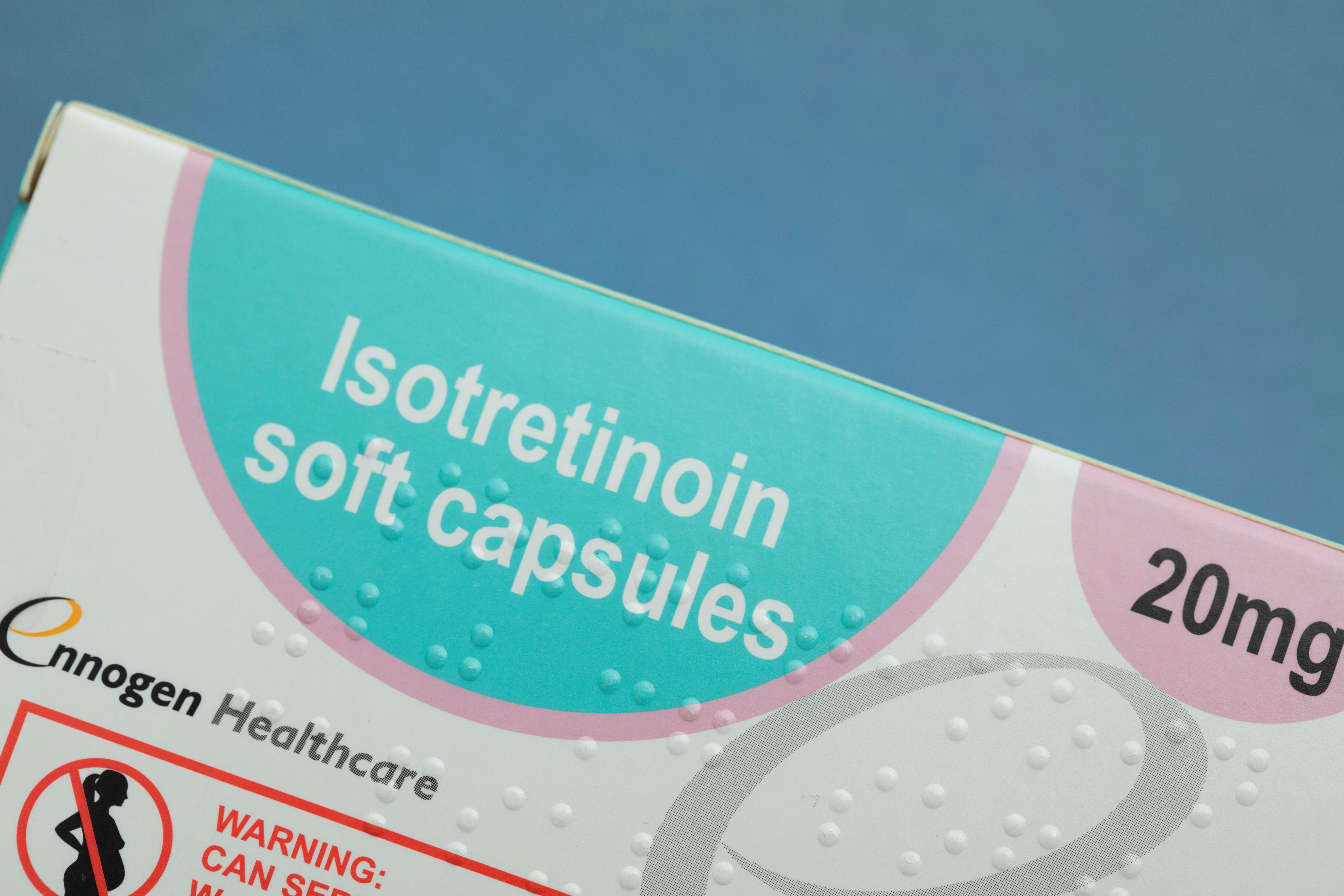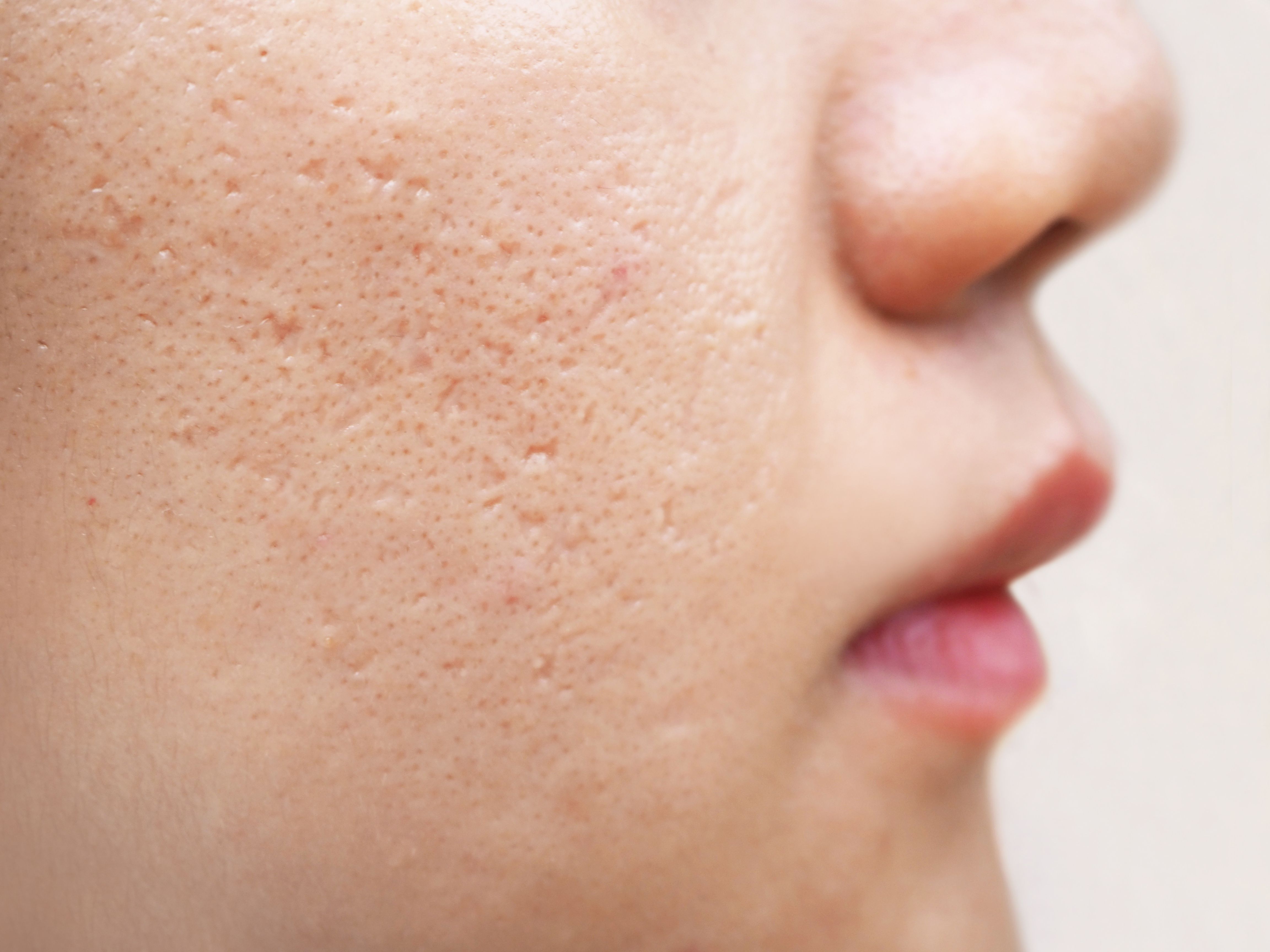- Acne
- Actinic Keratosis
- Aesthetics
- Alopecia
- Atopic Dermatitis
- Buy-and-Bill
- COVID-19
- Case-Based Roundtable
- Chronic Hand Eczema
- Chronic Spontaneous Urticaria
- Drug Watch
- Eczema
- General Dermatology
- Hidradenitis Suppurativa
- Melasma
- NP and PA
- Pediatric Dermatology
- Pigmentary Disorders
- Practice Management
- Precision Medicine and Biologics
- Prurigo Nodularis
- Psoriasis
- Psoriatic Arthritis
- Rare Disease
- Rosacea
- Skin Cancer
- Vitiligo
- Wound Care
News
Article
Suicide Risk in Isotretinoin Users: New Data
Author(s):
Despite its black box warning, isotretinoin does not appear to increase the risk of suicide in acne patients, a finding investigators say is reassuring in their latest research.
ink drop/AdobeStock

A new investigation has shown no evidence of an increased relative risk of suicide or psychiatric conditions among isotretinoin users, adding to a growing body of evidence that the drug does not cause depression or suicidal thoughts among its users.1-3
Additionally, the investigators found that isotretinoin users were less likely than nonusers to attempt suicide at 2 to 4 years following treatment.
The report, a meta-analysis of 25 studies involving a total of 1,625,891 patients, appeared in the journal JAMA Dermatology on February 29.
The potential link between isotretinoin and psychiatric disorders has been the subject of considerable debate and conflicting findings in the literature, the investigators noted, and in 2005 the United States Food and Drug Administration (FDA) required isotretinoin to carry a black box warning for suicide, depression, aggression, and psychosis.
To clarify the absolute and relative risk and risk factors associated with suicide and psychiatric disorders among isotretinoin users, investigators Nicole Kye Wen Tan et al, of the National University of Singapore, searched studies in PubMed, Embase, Web of Science, and Scopus from inception until January 24, 2023.
They found:
- The 1-year pooled absolute risk from between 2 and 8 studies of completed suicide, suicide attempt, suicide ideation, and self-harm were each less than 0.5%, while that of depression was 3.83% (95% CI, 2.45-5.93; I2 = 77%) in 11 studies.
- Isotretinoin users were less likely than nonusers to attempt suicide at 2 years (RR, 0.92; 95% CI, 0.84-1.00; I2 = 0%), 3 years (RR, 0.86; 95% CI, 0.77-0.95; I2 = 0%), and 4 years (RR, 0.85; 95% CI, 0.72-1.00; I2 = 23%) following treatment.
- Isotretinoin was not associated with the risk of all psychiatric disorders (RR, 1.08; 95% CI, 0.99-1.19; I2 = 0%).
- Studies with participants of older age reported lower 1-year absolute risk of depression, while those with a higher percentage of male participants reported a higher 1-year absolute risk of completed suicide.
- Having a psychiatric history was associated with an increased risk of suicide attempts and psychiatric disorders among isotretinoin users, while a higher cumulative dose of isotretinoin was associated with a lower risk of suicide attempt.
“While these findings are reassuring, clinicians should continue to practice holistic psychodermatologic care and monitor patients for signs of mental distress during isotretinoin treatment,” Tan et al concluded.
They noted a weakness of the study design: due to the controversy surrounding isotretinoin and mental health, “it is plausible that patients deemed to be at higher risk of psychiatric illness were less likely to receive isotretinoin, which may have resulted in an underestimation of the psychiatric risks of isotretinoin in these observational studies.”
Also, "patients taking isotretinoin may be more closely monitored for mood changes, which could result in increased detection of psychiatric outcomes; however, our meta-analysis did not detect any increased risk of psychiatric disorders among isotretinoin users. Detection bias may also act in the opposite direction, as early detection of psychiatric disorders allows for timely treatment, which in turn may lower the risk of suicide.”
References
- Tan NKW, Tang A, MacAlevey NCYL, Tan BKJ, Oon HH. Risk of suicide and psychiatric disorders among isotretinoin users: a meta-analysis. JAMA Dermatol. 2024;160(1):54–62. doi:10.1001/jamadermatol.2023.4579
- Gnanaraj P, Karthikeyan S, Narasimhan M, Rajagopalan V. Decrease in “Hamilton Rating Scale for Depression” following isotretinoin therapy in acne: an open-label prospective study. Indian Journal of Dermatology. 60(5):p 461-464, Sep–Oct 2015.DOI: 10.4103/0019-5154.164358
- Isotretinoin and suicide: epidemiological study shows no association. Dermatology Times. April 30, 2009. Accessed February 29, 2024. https://www.dermatologytimes.com/view/isotretinoin-and-suicide-epidemiological-study-shows-no-association
Newsletter
Like what you’re reading? Subscribe to Dermatology Times for weekly updates on therapies, innovations, and real-world practice tips.











